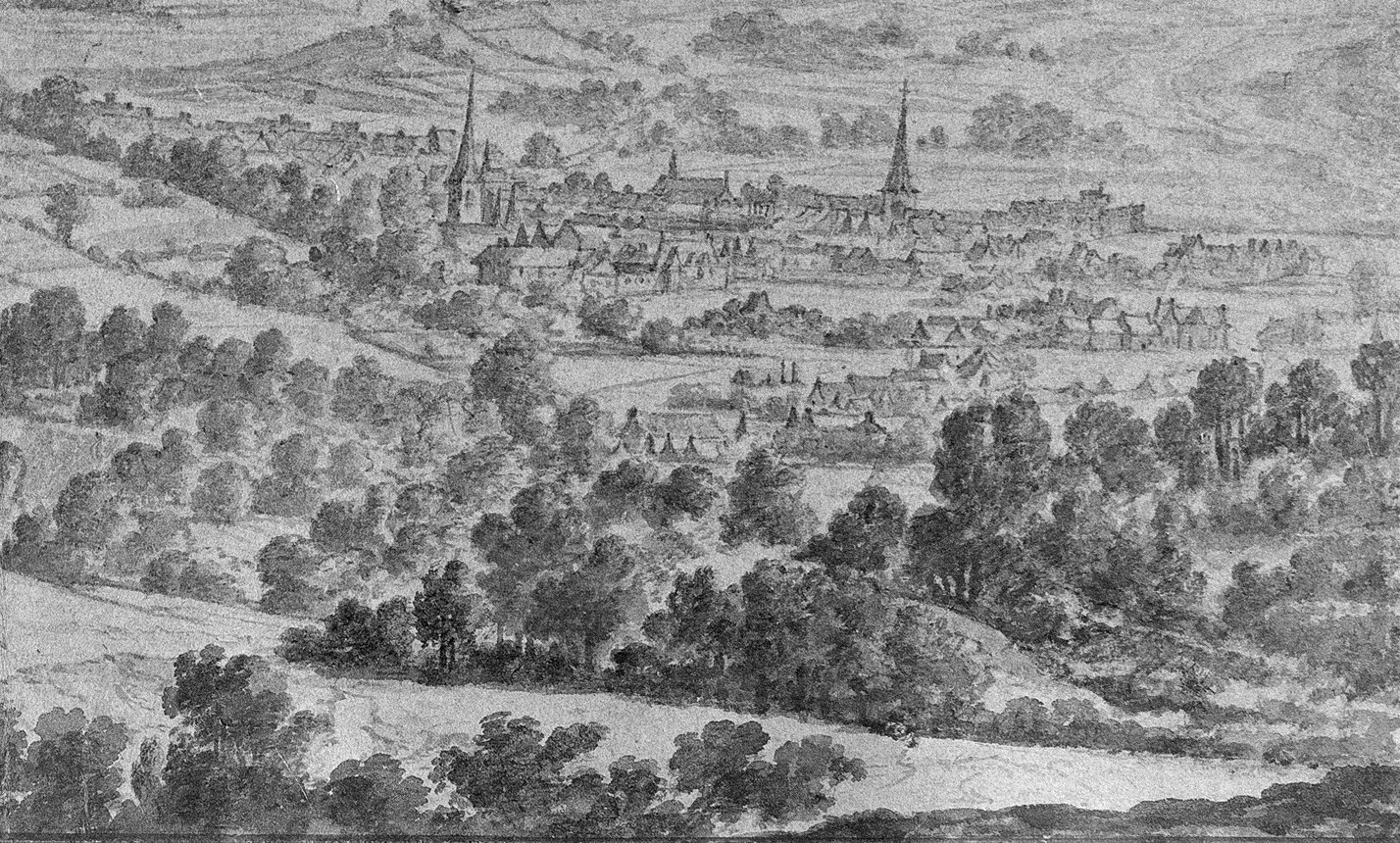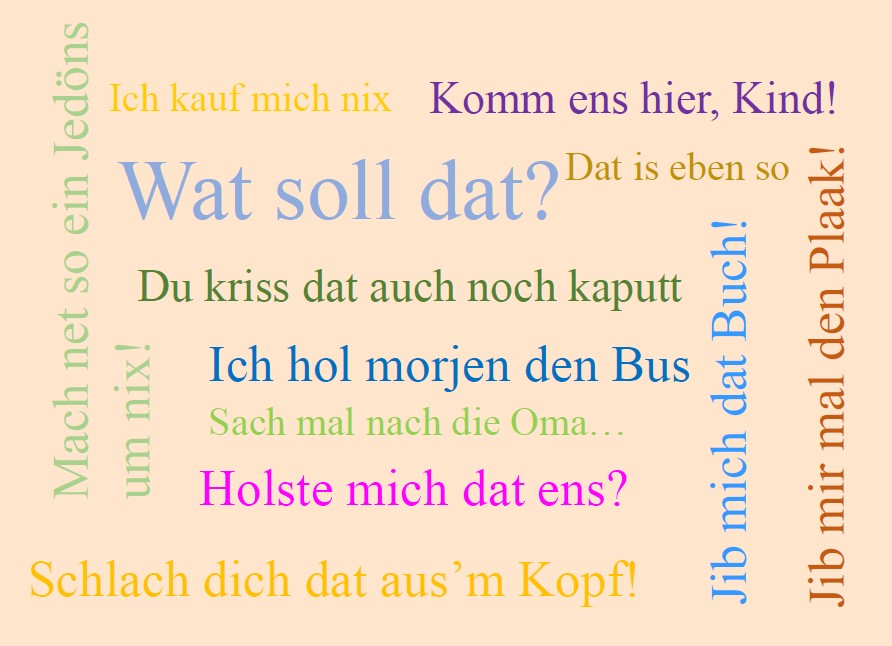Regiolect research is still in its early stages in East Belgium. Three questions are of particular interest:
- What special features do the regiolects of East Belgium develop in comparison to the neighbouring German regions?
- What influence does the disappearing dialect have on this language?
- Are the regiolects also stigmatised in East Belgium as the language of the uneducated? In other words, does anyone who is self-respecting always have to speak standard German in East Belgium?
East Belgians have also developed colloquialisms, some of which are based on the Rhenish regiolects: ‘Wat soll dat? Mach net so ein Jedöns um nix!’ (= Was soll das? Mach doch nicht so einen Wind um nichts! What’s all that about? Stop making such a fuss!) or ‘Jib mir mal den Plaak’ (Gib mir mal das Spültuch; give me the tea towel, please), for example, are typical idioms for everyday language in the Eifel. These regiolects are referred to as standard German ‘mit Knubbeln’ (‘with knobs’) in East Belgium, which sounds slightly pejorative. German teachers often believe this colloquial language to be bad German. And yet, where a dialect has already died out or no longer has a social function, this language often develops into an element of a regional language consciousness.
Among the best-known representatives of a Rhenish regiolect are undoubtedly Konrad Adenauer and Reiner Calmund. They spoke their broad ‘Rhenish’ in situations where one is not used to it, such as on the radio, or on television. East Belgium lacks such a well-known representative of its regiolects. Belgian radio in particular focuses on pronunciation with as few accents as possible rather than on regional identity.

